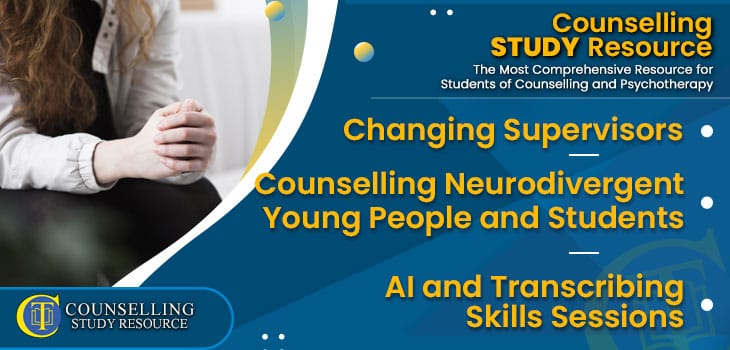See Counselling Skills Used in Real Sessions by Qualified Therapist
Real Sessions – Real Presentations – Real Skills
Gain the competence and confidence to use counselling techniques effectively!

In Episode 291 of the Counselling Tutor Podcast, your hosts Rory Lees-Oakes and Ken Kelly are back with this week’s three topics:
Five Reasons to Consider Changing Your Clinical Supervisor
You might be reluctant to think about changing your supervisor, but in this section, Rory and Ken highlight some of signs that it might be time to consider it:

Real Sessions – Real Presentations – Real Skills
Gain the competence and confidence to use counselling techniques effectively!
In this week’s ‘Practice Matters’, Rory speaks with Sian Clare about working with neurodivergent young people and students in therapy.
The key points of this discussion include:

On-demand access to a rich lecture library covering theory, skills, and professional development for counselling students—Mapped to the UK awarding body criteria
“The Student Library has been BRILLIANT, I can’t recommend it enough!
It has been a lifeline in helping me prepare for practice and my first clients. If you’re considering it, go-for-it, it’s absolutely worth it!”
Kelly – Graduated and now in practice.
Client data needs to be protected, and that means taking extra care with it. In this section, Rory and Ken explain what to watch out for when using AI, and handling client data:
Five Reasons to Consider Changing Your Clinical Supervisor

Get on-demand Certified CPD that is implementable in your practice
